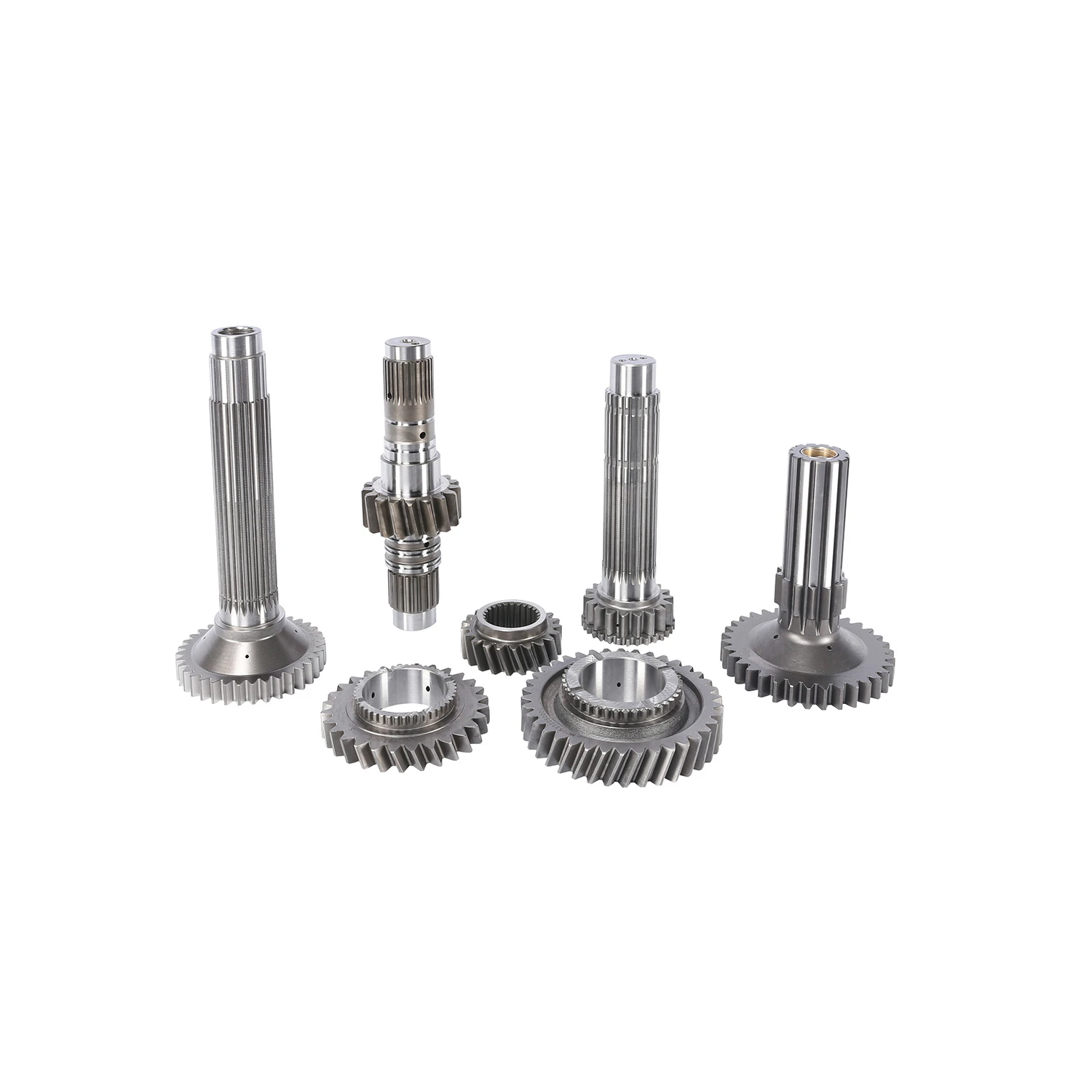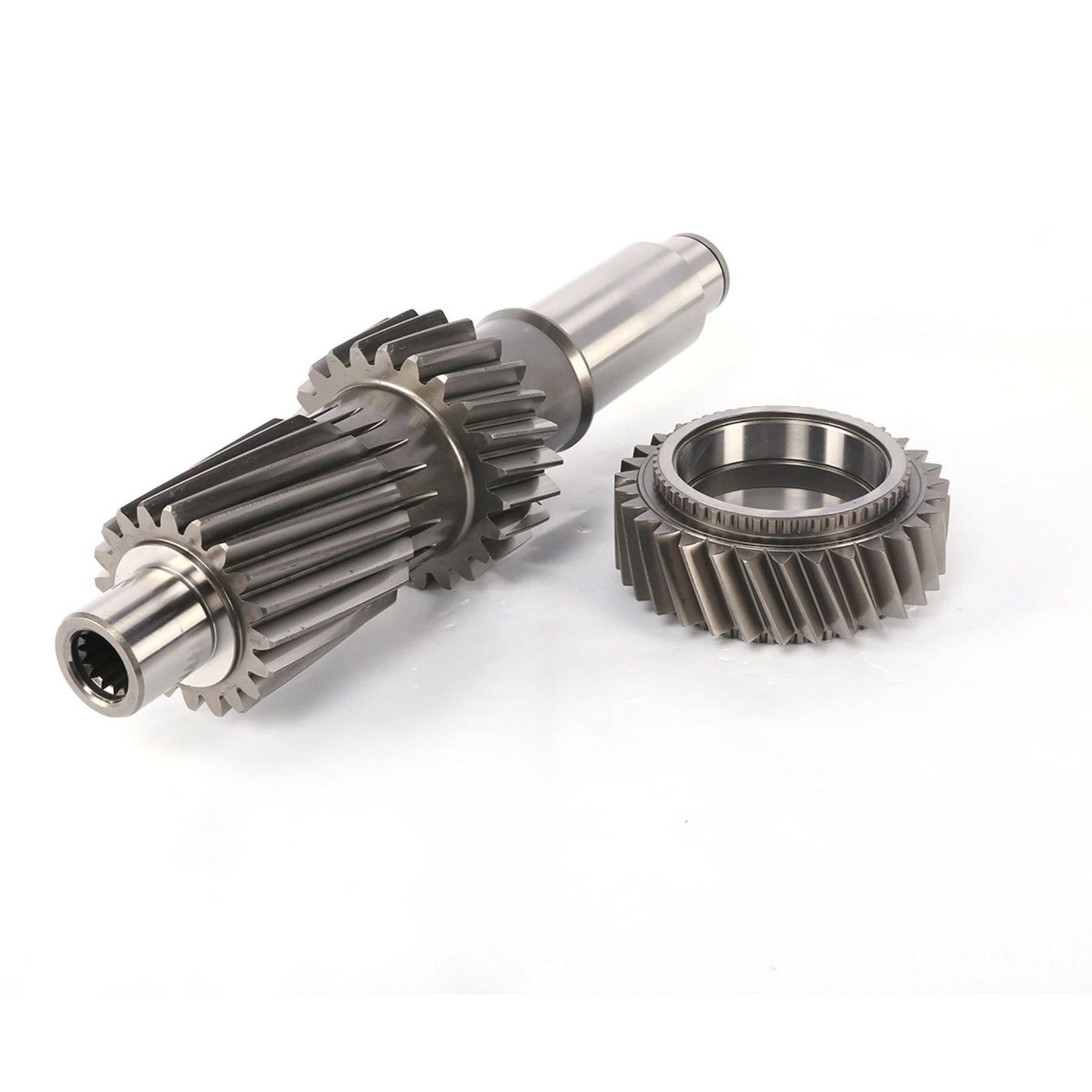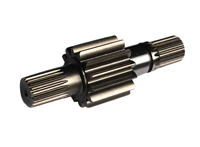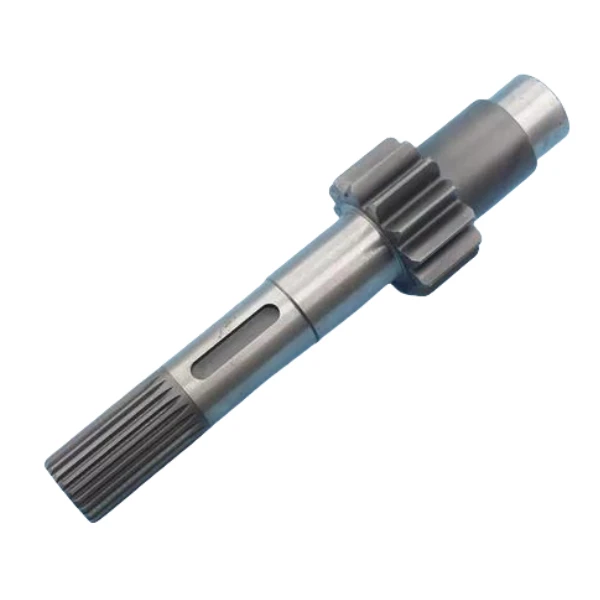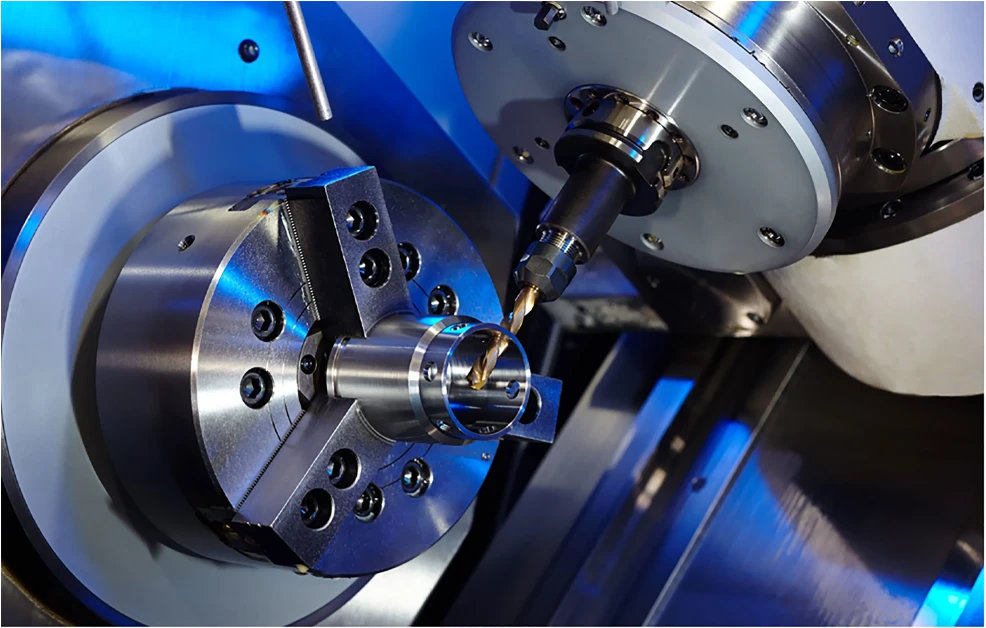- Tel: +86 13451474678 / 13451474678
- Email: / hbzinanmech@gmail.com
Precision Gear Shafts for Sale: Durable Assemblies & Couplings
Navigating the Market for High-Performance Gear Shafts: Trends and Innovations
The global industrial landscape is experiencing a significant evolution, driven by the relentless pursuit of efficiency, reliability, and precision across diverse sectors. At the heart of this transformation lies the humble yet critical component: the gear shaft. As industries such as petrochemical, metallurgy, mining, and advanced manufacturing push the boundaries of operational intensity, the demand for robust, highly engineered, and durable gear shaft for sale solutions is escalating. Current market trends indicate a strong shift towards materials offering superior strength-to-weight ratios, enhanced corrosion resistance, and prolonged service life, reflecting a broader industry imperative to reduce downtime and maintenance costs. Furthermore, advancements in manufacturing technologies, particularly in additive manufacturing and sophisticated CNC machining, are enabling the production of gear shafts with increasingly complex geometries and tighter tolerances, opening new avenues for performance optimization. This evolution is not merely about material science; it encompasses integrated design methodologies, predictive maintenance integration, and the ability to customize solutions that precisely match unique operational demands, ensuring that the supply chain remains resilient and responsive to the highly dynamic requirements of modern industrial applications.
The drive for sustainable operations also plays a pivotal role, influencing material selection and manufacturing processes to minimize environmental impact while maximizing energy efficiency. Manufacturers of the gear shaft for sale are now focusing on designs that reduce frictional losses and improve power transmission, contributing directly to energy conservation efforts in large-scale industrial machinery. The integration of advanced sensor technologies into gear shaft assemblies is another burgeoning trend, enabling real-time monitoring of operational parameters such as torque, vibration, and temperature. This data-driven approach facilitates proactive maintenance, preventing catastrophic failures and extending the overall lifespan of critical equipment. Moreover, the increasing complexity of modern machinery necessitates solutions that can withstand extreme operational conditions, including high temperatures, corrosive environments, and significant mechanical stresses. This has spurred innovation in surface treatment technologies, such as nitriding, carburizing, and induction hardening, which significantly enhance the wear resistance and fatigue strength of gear shafts. The market for gear shaft assembly is thus characterized by continuous innovation, driven by both technological advancements and the evolving demands for higher performance and greater sustainability across various industrial applications, pushing the boundaries of what these essential mechanical components can achieve.
The Engineering Excellence Behind Every Gear Shaft: Manufacturing and Quality Assurance
The production of a high-quality gear shaft for sale involves a sophisticated, multi-stage manufacturing process, meticulously designed to imbue the component with exceptional mechanical properties and dimensional accuracy. The journey typically begins with the selection of premium-grade materials, such as alloy steels like AISI 4140, 4340, or 8620, renowned for their superior strength, toughness, and hardenability. For specialized applications demanding high corrosion resistance or non-magnetic properties, stainless steels (e.g., 304, 316) or even advanced superalloys might be utilized. The initial material processing often involves forging, a crucial step that enhances the material's grain structure, eliminating porosity and improving its inherent strength and fatigue resistance by aligning the grain flow with the shaft's geometric contour. This is followed by annealing or normalizing heat treatments to relieve internal stresses and prepare the material for subsequent machining. Precision CNC machining is then employed to achieve the intricate geometries, including the gear teeth profiles, splines, keyways, and bearing journals, with tolerances often measured in micrometers. This stage demands state-of-the-art machinery and highly skilled operators to ensure exact adherence to design specifications, which directly impacts the performance and efficiency of the final gear shaft coupling within an operational system.
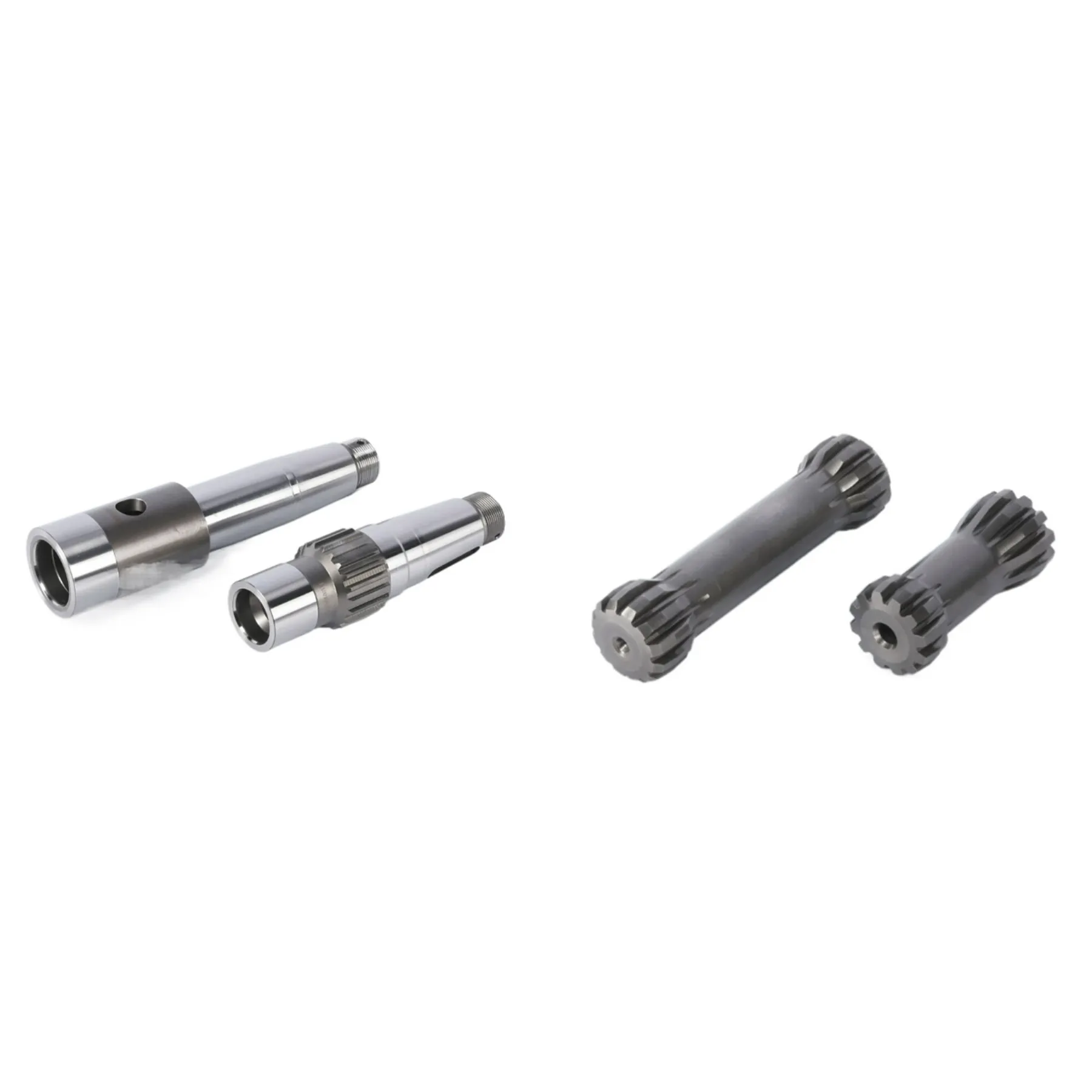
Following the primary machining, the gear shaft for sale undergoes a series of critical heat treatments, such as carburizing, nitriding, or induction hardening, tailored to achieve specific surface hardness and case depth while maintaining a ductile core. These processes significantly enhance the wear resistance, torsional rigidity, and overall durability of the gear shaft, mitigating the risk of premature failure under demanding operational loads. Post-heat treatment, precision grinding and honing operations are performed to achieve the final dimensional accuracy and surface finish required for optimal meshing and bearing fit. Throughout the entire manufacturing cycle, rigorous quality control measures are implemented at every stage. This includes non-destructive testing (NDT) techniques such as magnetic particle inspection, ultrasonic testing, and eddy current testing to detect internal flaws or surface cracks. Dimensional verification is performed using coordinate measuring machines (CMMs) and optical comparators, ensuring strict adherence to international standards like ISO 9001 for quality management and ANSI/AGMA standards for gear tooth geometry. This exhaustive inspection regime ensures that each gear shaft meets stringent performance criteria, including high power transmission efficiency, minimal backlash, and extended service life, guaranteeing reliability in critical industrial applications such as those found in petrochemical, metallurgical, and water treatment plants, where components must often perform efficiently and resist corrosion for prolonged periods, contributing significantly to energy savings and operational stability.
Technical Specifications & Performance Benchmarks of Gear Shafts
Understanding the technical parameters of a gear shaft for sale is paramount for industrial buyers and engineers, as these specifications directly dictate compatibility, performance, and longevity in specific applications. Key parameters include material grade, which influences tensile strength, yield strength, and fatigue limit; dimensions such as shaft diameter, length, and bore size; and critical gear characteristics like module/diametral pitch, number of teeth, helix angle (for helical gears), and pressure angle. Surface hardness, typically measured in Rockwell or Brinell, is crucial for wear resistance, while case depth from heat treatment determines the hardened layer's thickness. Torsional rigidity and bending strength are calculated to ensure the shaft can transmit required torque without excessive deformation or failure. For example, a gear shaft assembly designed for heavy-duty mining equipment will require significantly higher bending strength and impact resistance compared to one used in a precision robotics application. The efficiency of power transmission, often exceeding 98% for well-designed and manufactured gear shafts, highlights their crucial role in minimizing energy loss within mechanical systems.
Representative Gear Shaft Technical Specifications
| Parameter | Typical Range/Value | Significance |
|---|---|---|
| Material Grade | AISI 4140, 4340, 8620, Stainless Steel 304/316 | Determines strength, toughness, and corrosion resistance. |
| Outer Diameter (OD) | 50mm - 1500mm (2" - 60") | Overall size, influenced by torque requirements. |
| Overall Length | 100mm - 5000mm (4" - 200") | System integration, support requirements. |
| Surface Hardness | 58-62 HRC (Case Hardened) | Wear resistance, fatigue life. |
| Case Depth | 0.8mm - 3.0mm (0.03" - 0.12") | Resistance to pitting and surface fatigue. |
| Gear Type | Spur, Helical, Bevel, Worm | Defines power transmission and noise characteristics. |
| Gear Accuracy Grade | AGMA Q10-Q13 / ISO Class 5-8 | Precision of tooth geometry, affecting backlash and noise. |
| Max Torque Capacity | Up to 500 kNm (approx. 370,000 ft-lb) | Maximum rotational force it can withstand. |
| Operating Temperature | -40°C to 200°C (-40°F to 392°F) | Material stability and lubrication effectiveness range. |
The performance of a gear shaft for sale extends beyond static specifications to dynamic operational benchmarks. This includes efficiency ratings, often exceeding 97% for well-lubricated and precisely manufactured shafts, which translates directly into energy savings. Noise, vibration, and harshness (NVH) levels are also critical, particularly in applications requiring smooth and quiet operation, where factors like gear accuracy grade (e.g., AGMA Q12 or higher) become decisive. Expected service life, often projected to be decades under optimal conditions, is a testament to robust design and manufacturing, minimizing the total cost of ownership (TCO) for industrial operators. Environmental factors, such as resistance to chemical corrosion or abrasive wear, are also assessed, especially for gear shafts operating in challenging environments like wastewater treatment or chemical processing plants. Through comprehensive finite element analysis (FEA) and real-world testing, manufacturers can accurately predict a gear shaft assembly's performance under various load conditions, thermal cycles, and rotational speeds, ensuring that the final product not only meets but often exceeds the most stringent industry standards and operational demands of the modern industrial economy.
Applications and Strategic Advantages of Advanced Gear Shaft Solutions
The versatility and critical importance of a gear shaft for sale are underscored by its ubiquitous presence across a myriad of industrial sectors, acting as the backbone of power transmission in heavy machinery. In the petrochemical industry, gear shafts are indispensable components in pumps, compressors, and agitators, where they must withstand highly corrosive environments and transmit significant power under continuous operation, often for years without maintenance. Their robust design, typically featuring specialized coatings or material selections like stainless steels, ensures reliability and prevents costly downtime in processes handling volatile chemicals. In metallurgy, particularly in rolling mills and continuous casting machines, gear shafts are subjected to immense shock loads and high temperatures, demanding exceptional torsional rigidity and fatigue strength. Here, forged shafts with deep case hardening are critical to ensure the longevity and efficiency of the mill, directly impacting production output and consistency. For the mining sector, gear shafts are found in massive excavators, crushers, and conveyors, operating in abrasive and often dusty conditions. The emphasis here is on extreme durability, impact resistance, and ease of maintenance, with designs often incorporating robust gear shaft coupling mechanisms to handle misalignments and absorb operational shocks, showcasing their adaptability across various operational challenges and contributing to overall equipment effectiveness (OEE) and worker safety in challenging environments.
Beyond heavy industries, the utility of a gear shaft for sale extends to emerging and precision-oriented applications. In renewable energy, they are vital in wind turbine gearboxes, transmitting power from the rotor to the generator, where reliability over a 20-year lifespan is non-negotiable, and designs must withstand fluctuating loads and extreme weather. The focus is on achieving maximum efficiency to optimize energy capture, along with minimal noise output. In the realm of marine propulsion, gear shafts drive propellers in vessels ranging from commercial ships to offshore platforms, requiring exceptional corrosion resistance against saltwater and the ability to handle high power demands continuously. For water supply and drainage systems, custom-engineered gear shafts power large pumps and valves, operating silently and efficiently to manage critical municipal infrastructure. The inherent advantages of well-engineered gear shafts, such as superior energy efficiency through optimized gear meshing, significant anti-corrosion properties from advanced material selection and surface treatments, and substantially extended service life due to robust design and manufacturing, translate directly into reduced operational costs, lower energy consumption, and minimized environmental footprint for end-users. These factors are compelling arguments for B2B decision-makers seeking to optimize their capital expenditures and long-term operational efficiencies.
Choosing Your Supplier: Comparison, Customization, and Commitment
When selecting a supplier for your gear shaft for sale needs, industrial buyers must look beyond mere price points to evaluate a manufacturer's comprehensive capabilities, technical expertise, and commitment to long-term partnership. Key differentiators include a manufacturer's proven track record, evidenced by years of service, a diverse portfolio of successful applications, and adherence to international quality standards such as ISO 9001 and industry-specific certifications like API (American Petroleum Institute) for oil and gas components. Evaluate the breadth of their design and engineering capabilities: Can they offer bespoke solutions that precisely meet unique operational parameters, or are they limited to standard off-the-shelf products? A manufacturer adept at finite element analysis (FEA) and computer-aided design (CAD) can optimize designs for specific load conditions, rotational speeds, and environmental challenges, ensuring a custom-fit solution that enhances system performance and longevity. Access to advanced manufacturing techniques, including precision CNC machining, specialized forging capabilities, and state-of-the-art heat treatment facilities, is crucial for producing high-tolerance, high-performance gear shafts. Furthermore, consider their material sourcing transparency and supply chain robustness, which are vital for consistent quality and timely delivery of your gear shaft assembly.
A crucial aspect of supplier evaluation is their post-sale support and commitment to customer satisfaction. This encompasses clear delivery schedules, robust warranty assurances, and responsive customer service for technical inquiries or potential issues. Companies that offer comprehensive testing data, detailed material certifications, and verifiable performance metrics demonstrate a high level of transparency and confidence in their products. For complex projects requiring unique specifications, the ability to provide detailed customized solutions, from initial design consultation to final product delivery and ongoing support, is invaluable. This includes collaborative engineering, where the supplier works closely with the client's technical team to refine specifications, ensuring that the gear shaft coupling or entire assembly integrates seamlessly into existing systems. A reputable supplier will also provide clear information on lead times, emergency order capabilities, and a structured customer support framework, ensuring minimal operational disruption and fostering a relationship built on trust and reliability. This holistic approach ensures that the investment in a high-quality gear shaft translates into tangible operational benefits and long-term value for the industrial enterprise, moving beyond a transactional purchase to a strategic partnership focused on enhancing performance and durability.
Frequently Asked Questions (FAQ) about Gear Shafts
Q1: What are the primary factors influencing the service life of a gear shaft?
The service life of a gear shaft for sale is a complex interplay of several critical factors. Firstly, material selection is paramount; high-quality alloy steels (e.g., 4140, 4340) with appropriate heat treatments (carburizing, nitriding, induction hardening) provide superior fatigue strength and wear resistance, which are crucial for longevity. Secondly, manufacturing precision, including accurate gear tooth profiling, surface finish, and tight dimensional tolerances, significantly impacts meshing efficiency and reduces stress concentrations, thereby extending life. Thirdly, operational conditions such as applied load, rotational speed, temperature, and lubrication quality play a vital role. Exceeding design limits, inadequate lubrication, or excessive vibration can dramatically shorten a shaft's lifespan due to accelerated wear, pitting, or fatigue cracking. Environmental factors like corrosion or abrasive particles also contribute to degradation. Finally, proper installation and alignment within the gear shaft assembly are essential, as misalignment can introduce unintended stresses and premature wear. Adherence to recommended maintenance schedules, including regular lubrication and inspection, can substantially prolong the operational life of the gear shaft and the entire system it drives, maximizing your investment and minimizing downtime.
Q2: How does customization impact the lead time and cost of a gear shaft?
Customization significantly influences both the lead time and cost of a gear shaft for sale, primarily due to the specialized processes and resources required. Unlike standard off-the-shelf components, custom gear shafts necessitate extensive engineering design work, including detailed CAD modeling, finite element analysis (FEA) to validate performance under specific loads, and the creation of unique manufacturing programs. Material procurement might also involve sourcing specialized alloys not kept in standard inventory. The manufacturing process itself for a custom gear shaft coupling or full assembly may involve custom tooling, intricate machining operations, and specific heat treatment parameters tailored to unique specifications, which are more time-consuming and labor-intensive than batch production of standard items. While these factors can extend lead times by several weeks to months and increase the per-unit cost, the long-term benefits often outweigh the initial investment. A precisely engineered custom gear shaft can offer superior performance, enhanced efficiency, prolonged service life, and perfect integration into existing machinery, leading to reduced operational costs, minimized downtime, and improved overall system reliability, providing a far better return on investment over the equipment's lifespan compared to adapting a non-optimal standard component.
Q3: What quality assurance standards should I look for in a gear shaft manufacturer?
When sourcing a gear shaft for sale, evaluating a manufacturer's adherence to stringent quality assurance standards is paramount for ensuring product reliability and performance. Key certifications and practices to look for include ISO 9001, which signifies a robust quality management system covering all aspects from design and manufacturing to delivery and customer service. For specific industries, additional certifications are highly indicative of specialized expertise and compliance, such as API (American Petroleum Institute) for oil and gas components, or AGMA (American Gear Manufacturers Association) standards for gear accuracy and strength. Reputable manufacturers will also perform comprehensive in-house testing, including material chemical analysis, mechanical property testing (e.g., tensile, impact, fatigue), non-destructive testing (NDT) like ultrasonic and magnetic particle inspection for internal flaws, and dimensional inspection using CMMs (Coordinate Measuring Machines) to verify precise geometries. A commitment to traceable materials, detailed documentation of manufacturing processes, and clear warranty provisions further indicate a high level of trustworthiness and quality. These rigorous standards ensure that every gear shaft assembly delivered meets the highest performance benchmarks, offering unparalleled durability and efficiency in demanding industrial environments.
Commitment to Excellence: Delivery, Warranty, and Support
Our commitment to delivering high-performance gear shaft for sale solutions extends far beyond the manufacturing floor, encompassing a holistic approach to customer satisfaction through transparent delivery protocols, comprehensive warranty coverage, and unwavering after-sales support. We understand that timely delivery is critical to maintaining operational continuity for our B2B clients, which is why we provide clear, upfront delivery schedules and work diligently to meet agreed-upon deadlines, even for complex custom orders. Our logistics team is equipped to handle national and international shipments, ensuring secure and efficient transport of your vital components. Each gear shaft assembly and gear shaft coupling we produce is backed by a robust warranty, reflecting our confidence in the superior quality of our engineering and manufacturing processes. This warranty covers material defects and manufacturing faults, providing peace of mind and protecting your investment over the long term. Our goal is to minimize any potential downtime and ensure that our products perform reliably under the most demanding industrial conditions, solidifying our reputation as a trusted partner in the supply chain for critical mechanical components.
Furthermore, our dedication to client success is manifested through our responsive and knowledgeable customer support team. From initial inquiry and technical consultation to post-installation assistance, our engineers and service representatives are readily available to address any questions, offer technical guidance, and provide solutions to operational challenges. We believe in fostering long-term partnerships built on trust and mutual success. This includes providing detailed documentation, such as material certifications, test reports, and installation guides, to ensure proper handling and integration of your gear shaft for sale. Should any issue arise, our rapid response protocol ensures that expert assistance is dispatched efficiently, minimizing any disruption to your operations. This comprehensive support framework underscores our commitment not just to selling a product, but to providing an end-to-end solution that contributes directly to the efficiency, reliability, and longevity of your industrial machinery. Our unwavering focus on quality, timely delivery, and proactive support makes us the preferred choice for discerning industrial buyers seeking unparalleled performance and service in high-stakes environments.
References
- American Gear Manufacturers Association (AGMA) Standards.
- International Organization for Standardization (ISO) 9001:2015 Quality Management Systems.
- American Society for Testing and Materials (ASTM) International Standards for Materials.
- Machinery's Handbook, 31st Edition, Erik Oberg, Franklin D. Jones, Horton, Henry H., and Christopher J. McCauley.
- Shigley's Mechanical Engineering Design, 11th Edition, Richard G. Budynas, J. Keith Nisbett.
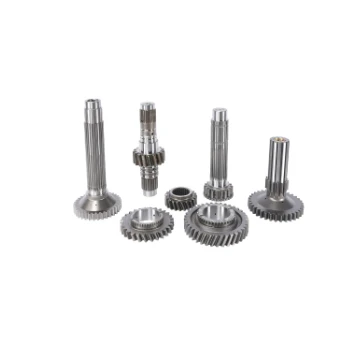
The agricultural and industrial machinery sector is experiencing remarkable growth, and at the heart of this expansion lies the trade and supply of tractors.
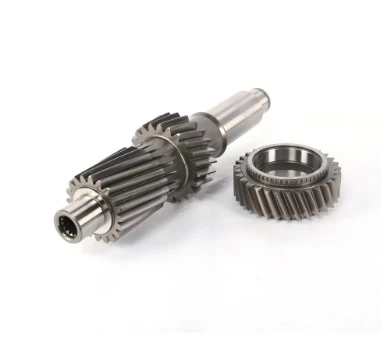
In the world of heavy - duty construction, the seamless operation of machinery is crucial for large - scale projects.
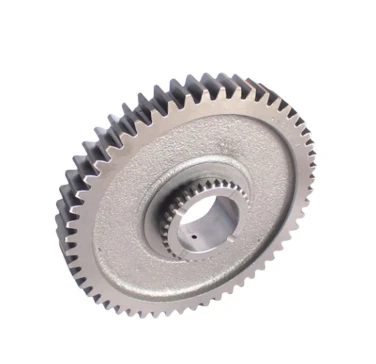
The world of tractors is vast and varied, catering to both practical agricultural needs and the passionate interests of collectors.
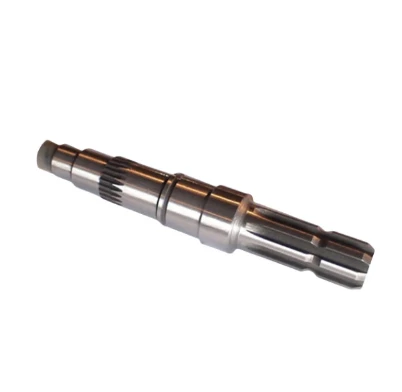
The agricultural and construction machinery landscape is constantly evolving, with tractors standing as essential workhorses for a variety of tasks.
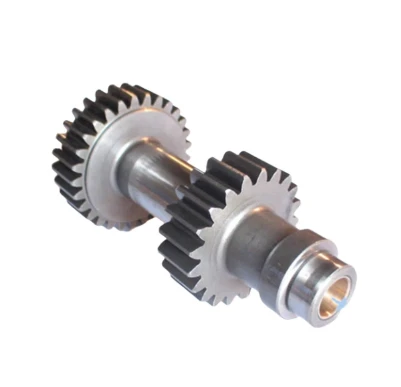
In the intricate world of mechanical engineering, gears are fundamental components that enable the seamless transfer and manipulation of power.
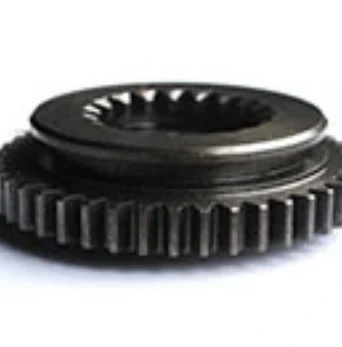
The market for tractors is a bustling hub, catering to a wide range of needs from large - scale farming operations to small - scale gardening projects.
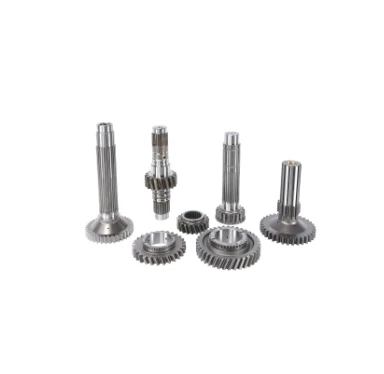
In the dynamic world of farming, machinery has become an essential part of efficient and productive operations.
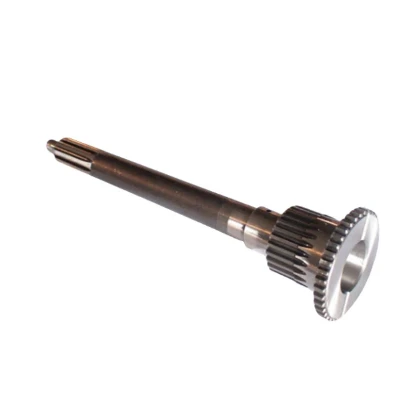
In the expansive realm of agriculture, various tools and machines play crucial roles in ensuring efficient crop production and overall farm management.
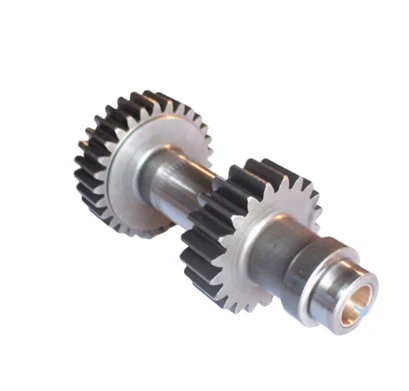
Tractors are essential workhorses in the agricultural and construction sectors, playing a pivotal role in a wide range of tasks.
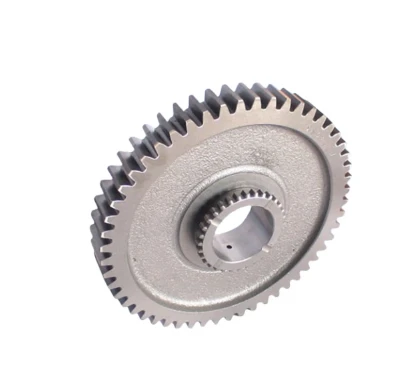
The agricultural and construction sectors rely heavily on tractors for their operations, and the entities involved in the production, distribution, and pricing of these machines shape the industry's trajectory.
International layout
Spread all over the world
our products are exported to various parts of the world. Currently, our products have been exported to more than 40 countries Our products cover Asia, Europe, Africa, South America, North America, and Oceania
Sign up
for Newsletter
Subscribe to the weekly newsletter for all the latest updates


